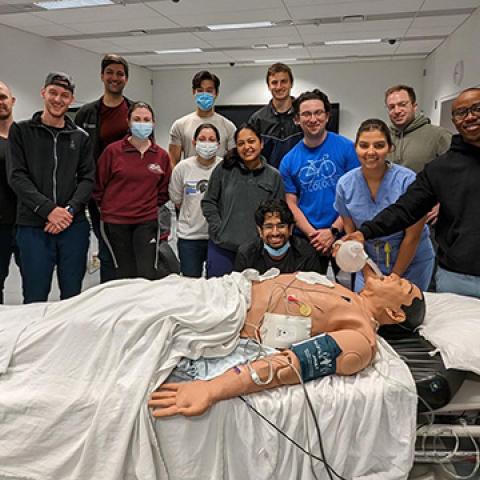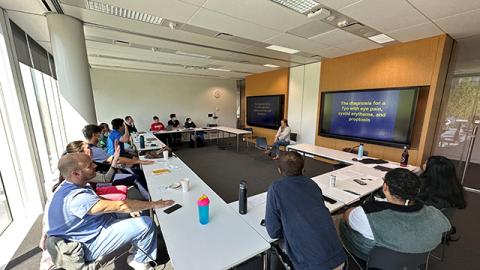“Beep. Beep. Beep.” The jarring alert of a pager seems even more intimidating during the month of July. “The patient in room 216 is getting worse. What would you like to do, doctor?”
This question can be terrifying for a new physician—but a new Case Western Reserve University School of Medicine course aims to bolster student confidence by simulating real-life scenarios before they begin new roles as residents.
The “Transition to Residency” pilot debuted in April 2023 with University Hospitals Cleveland Medical Center doctors Matthew Stull and Andrew Golden guiding 14 students through the practicalities of residency—regardless of specialty.
“While each specialty has nuances, the stress of transitioning to being the decision-maker with the ‘power of the tap badge’ is the same regardless of where one matches,” said Stull. “Through high-fidelity simulation, hands-on workshops and didactics—students engage in the practical application of medical knowledge gained during the clinical years of medical school.”
In partnership with the Mt. Sinai Skills and Simulation Center at the Health Education Campus, the course relies heavily on “Nightmares on Call,” true-to-life simulations designed to immerse students in the evaluation and management of decompensating patients.
A workshop, titled “Pager Game,” exposes students to the pressure of answering a myriad of pages while learning task prioritization, patient triage and symptom management skills.
Recognizing that residency encompasses additional skills outside of medicine, sessions also include financial literacy for residents, residents as teachers and advanced communication standardized patient encounters.
“Students and faculty alike saw immense growth in skills such as stabilization of crashing patients and crisis team leadership, benefiting all future physicians in the clinical environment and elsewhere,” said Stull.
Feedback on the “Transition to Residency” course was uniformly positive with every student recommending it for future graduating students. Based on the success of this pilot curriculum, the course is expanding in 2024.
Golden says the goal is for all School of Medicine students to be confident when responding, “Hi, I’m the doctor returning your page and I’m here to help.”



